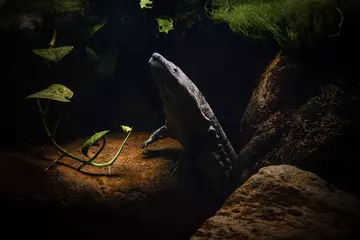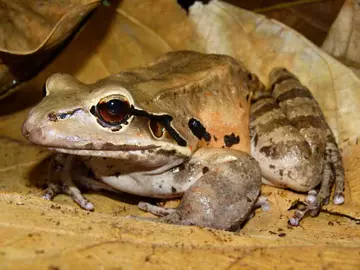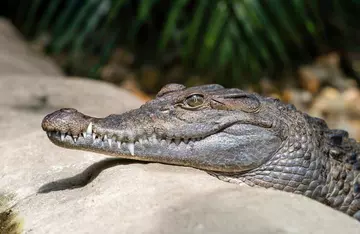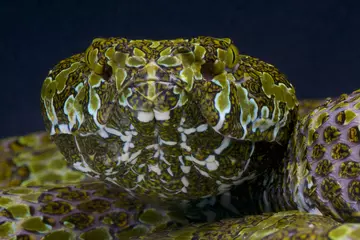
Unveiling The Secret Life Easter 2024 Lineup
Get to know the planet’s most mysterious creatures this Easter at the Zoo, with a brand-new experience – the Secret Life of Reptiles and Amphibians.
Home to some of the planet’s most fascinating yet threatened species – including one of the world’s largest frogs, jewel-coloured geckos, and turtles with heads so big they cannot fit in their shells - Secret Life of Reptiles and Amphibians will introduce you to wondrously weird creatures.

What to expect at a Secret Life
Greeted by a beautiful wall-climbing gecko statue upon entering, visitors will first get a glimpse into our specialist breeding and animal care areas, with the ‘behind-the-scenes’ bought to the fore in the new space. As well as putting the zookeepers on show, Secret Life of Reptiles and Amphibians will showcase our global conservation efforts key species we care for - as part of ZSL, a science-driven conservation charity.
You will come nose-to-nose with one of the world’s largest and most threatened frogs – as the breeding group of Critically Endangered mountain chicken frogs at the Zoo will be visible for the first time. The enormous frogs were once widespread across the Caribbean until a killer fungus was introduced to their habitat. A mass mortality event in the early 2000s was discovered - by a team including a ZSL scientist - to have been caused by chytrid fungus, which wiped out more than 90% of their population.

In 2009, our conservationists along with other zoos airlifted the last few mountain chicken frogs to safety in a last-ditch attempt to save the species from extinction, a special unit was built and a breeding programme for the animals was established – but until now both the frogs and the incredible work being done behind the scenes to save them has been unseen by the conservation Zoo’s visitors.
Getting the chance to delve into our vast scientific research, visitors can try their hand at swabbing a frog to test for chytrid, with a replica lab kit outside the frogs’ home.
Secret Life of Reptiles and Amphibians has been meticulously designed to meet every need of its inhabitants – with each of its 33 species having individual, and very precise, requirements for temperature, humidity, water quality and lighting. The custom-built facility features 11 different climate-controlled zones, more than 50 aquatic systems, and the Zoo’s specialist horticulture team have carefully planted each habitat to provide shade, egg laying sites, basking locations and camouflage areas for the very particular residents.

Our 1.9 metre long Philippine crocodile may be spotted basking on the banks of, or swimming in, its 30,000-litre pool, while young visitors can board a boat like the ones used by researchers to study the crocs in the wild. The army of mossy frogs will test even the most ardent of ‘Where’s Wally’?’ fans, as they demonstrate their unparalleled camouflage skills in their leafy home, in contrast to the turquoise gecko, who well and truly stands out from the crowd with its electric-blue skin.

Stunning Mangshan vipers and a striking King Cobra have tree trunks to coil around and leaves to shelter beneath, while the big-headed turtles will be keeping an eye on it all – because as their name suggests, their shells provide no shelter for their supersized skulls.
A shadowy underwater home is hoped to provide the perfect love nest for the Zoo’s pair of Critically Endangered Chinese giant salamanders – the world’s largest amphibians, they are sometimes referred to as ‘living fossils’, as their evolutionary lineage diverged from all other amphibians around 160 million years ago. Largely solitary animals, an invisible divide will give the territorial animals the space they need, until they’re in the mood to get together.
